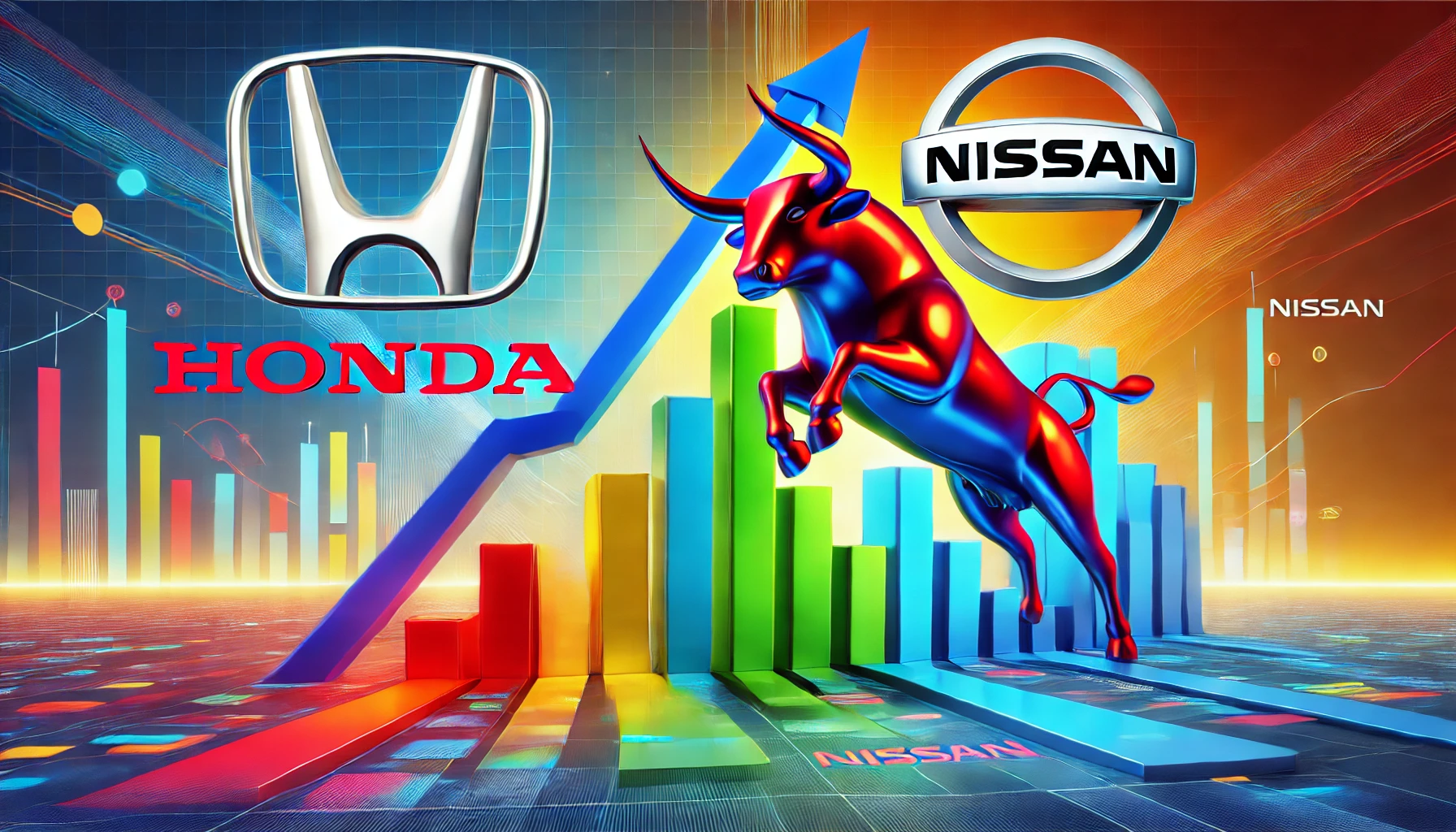Nissan and Honda: Shocking Merger Talks to Create Automotive Powerhouse
Could this be the automotive game-changer of the decade? Nissan and Honda have officially entered discussions that may result in a merger to form the world’s third-largest automaker, shaking up the global automotive industry as we know it.
Key Points:
- Merger Scope: Nissan and Honda are exploring merging under a single holding company, with Mitsubishi potentially joining.
- Global Impact: The merger could catapult them into the top three global automakers by sales.
- Timeline: Discussions aim to conclude by mid-2025, with the merger finalized by August 2026.
- Market Reactions: Honda stock soared 15%, while Nissan shares dipped slightly amidst speculation.
- Synergy Goals: Focused on economies of scale, EV development, and competing with giants like Toyota and Tesla.
A Bold Move in Uncertain Times
The automotive industry is undergoing seismic changes with the transition to electric vehicles (EVs) and increased competition from new players like Tesla and BYD. Japanese automakers Honda and Nissan, historically rivals, are now discussing a potential merger. This unprecedented collaboration aims to address shared challenges, including rising costs, EV production lag, and global market pressures.
Toshihiro Mibe, CEO of Honda, remarked, “This merger is not merely a business decision but a transformative step for both companies to lead in the EV revolution.” The holding company will retain both brands’ distinct identities while combining resources to innovate and grow.
What’s Driving the Merger?
- Electric Vehicle Race: Both Nissan and Honda are trailing in EV advancements compared to Tesla and BYD. By pooling R&D efforts, they aim to accelerate EV development.
- Market Dynamics: With Nissan’s ongoing financial struggles, including a recent 20% cut in global production, this merger offers a lifeline.
- Synergy Benefits: Honda could leverage Nissan’s expertise in hybrid technology and large SUVs, while Nissan gains from Honda’s strong market presence and innovation.
- Mitsubishi’s Role: As a Nissan ally, Mitsubishi’s involvement in the merger could further bolster economies of scale and expand product lines.
The Financial Impact
Honda and Nissan’s combined market value is estimated at $54 billion, with Honda contributing the lion’s share. While Honda announced a $7 billion stock buyback plan, Nissan faces a downgraded credit outlook, highlighting the urgency of strategic partnerships.
Analysts predict that the merger will significantly impact stock performance for both companies. Honda’s shares jumped 15% after the announcement, while Nissan experienced a slight decline amid uncertainty.
Challenges Ahead
While the merger is promising, it isn’t without risks. Corporate integration, cultural differences, and financial alignment will be critical hurdles. Nissan CEO Makoto Uchida acknowledged the complexity, stating, “The possibility of this not being implemented is not zero.”
Adding to the drama, former Nissan chairman Carlos Ghosn criticized the move as “a desperate attempt to stay afloat.”
What’s Next?
Over the next 18 months, Honda, Nissan, and potentially Mitsubishi will finalize merger details, targeting August 2026 for completion. If successful, the merger will reshape the competitive landscape, challenging industry giants like Toyota and Volkswagen.
For investors, this is a pivotal moment. Both Honda and Nissan stocks are expected to experience volatility as talks progress. Keep an eye on market trends and announcements to gauge the merger’s impact.
Final Thoughts
The Nissan-Honda merger is more than just business—it’s a signal of how legacy automakers are adapting to an era defined by electrification and innovation. Whether this bold step creates a global powerhouse or collapses under its weight remains to be seen, but one thing is certain: the automotive world is watching closely.
Will the Honda-Nissan merger revolutionize the industry or become another failed alliance? Share your thoughts below!
FAQs About the Nissan-Honda Merger Talks
1. What is the purpose of the Nissan-Honda merger?
The merger aims to combine resources, reduce costs, and accelerate innovation, particularly in electric vehicle (EV) development. It will allow both companies to compete more effectively with global giants like Tesla, Toyota, and Volkswagen.
2. Will Mitsubishi be part of the merger?
Yes, Mitsubishi, a Nissan alliance partner, has been invited to join the talks. Their involvement could enhance the merger’s scale and product offerings.
3. When will the merger be finalized?
If discussions proceed as planned, the merger is expected to be completed by August 2026, with a formal agreement by mid-2025.
4. How will the merger impact Honda and Nissan stocks?
Honda’s stock has already seen a significant rise, while Nissan’s stock experienced a slight dip. The merger could lead to increased investor confidence and long-term gains, depending on the execution.
5. How will the merger affect customers?
Customers can expect a wider range of innovative vehicles, including better electric and hybrid options, as the combined entity will leverage shared technology and resources.
6. Will Honda and Nissan retain their brand identities?
Yes, the merger plans to maintain both brands’ unique identities while operating under a single holding company.
7. Why are Honda and Nissan merging now?
The global automotive industry is undergoing significant changes, particularly with the transition to EVs and autonomous driving. The merger will help both companies address these challenges and remain competitive.
8. How will the merger impact employees?
While no specific details have been announced, mergers typically lead to some restructuring. However, the focus appears to be on combining strengths rather than downsizing.
9. What role will EVs play in the merger?
Electric vehicles are central to the merger strategy. Honda and Nissan aim to jointly develop EVs and improve battery technology to better compete in the rapidly growing EV market.
10. How will the merger compare to competitors like Toyota?
The combined Honda-Nissan entity would become the third-largest automaker by sales, closely rivaling Toyota and Volkswagen. However, it will need to innovate aggressively to catch up in the EV space.
11. What risks are involved in the merger?
The merger faces challenges such as integrating corporate cultures, aligning financial structures, and ensuring smooth management transitions. If these issues are not addressed, the merger could face setbacks.
12. How can investors benefit from the merger?
Investors should monitor stock performance and merger updates closely. Honda’s stock has already surged, and Nissan’s stock could rebound if the merger progresses successfully. Long-term gains are likely if the merged entity meets its strategic goals.


